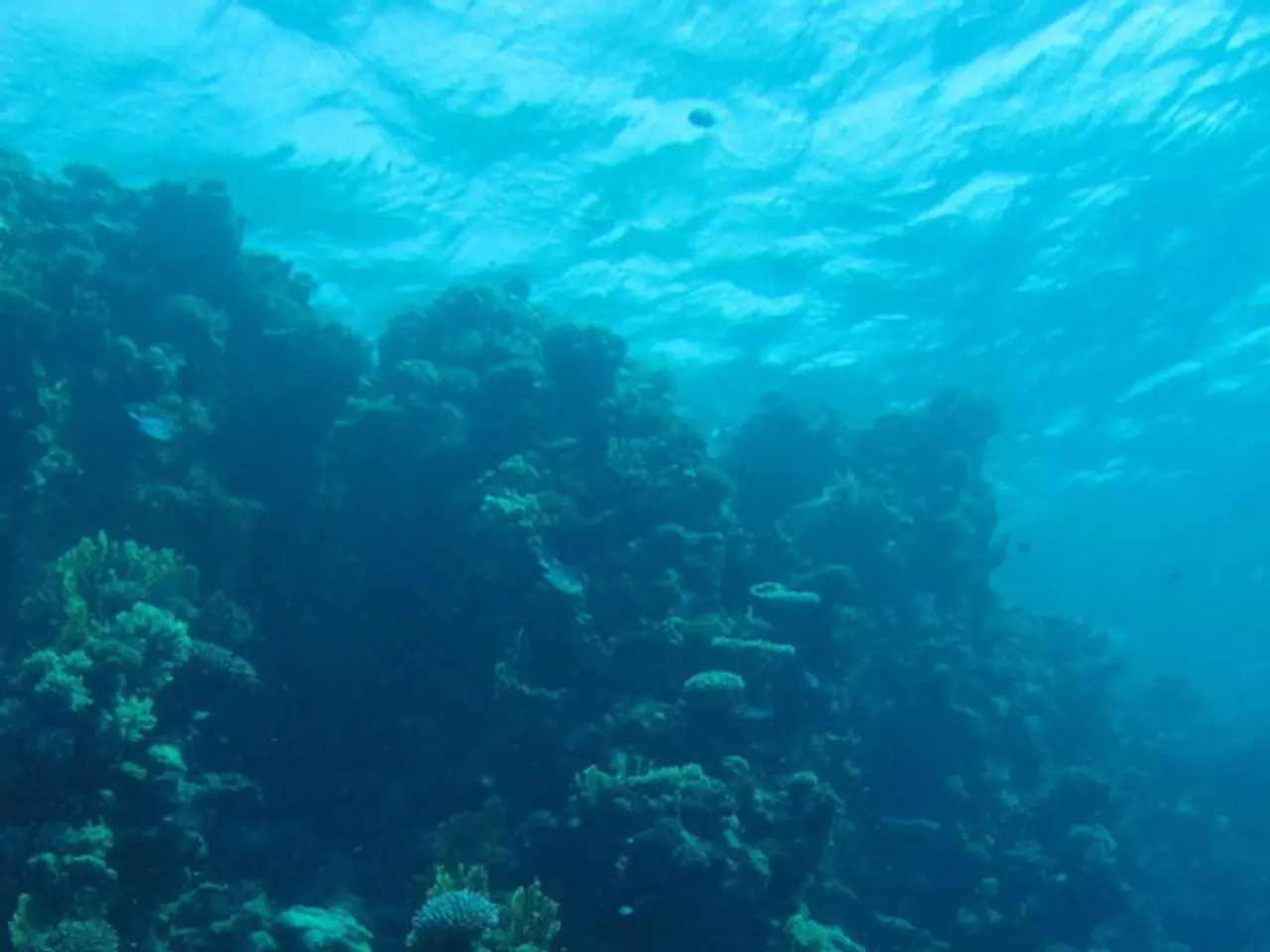Creative Suggestions for World Ocean Day Celebration
The health of our oceans is vital for the overall health of the planet and its ability to maintain a stable climate. Unfortunately, our oceans are facing a crisis of epic proportions due to acidification, a consequence of increased CO2 emissions.
Oceans, which contain 97% of the Earth's water, are close to critical levels of acidity. As a result, the temperature of our oceans rising at its current rate could result in no coral reefs by 2050. This alarming prediction is based on the fact that the average global ocean surface pH has dropped from about 8.11 in 1985 to 8.05 by 2022, reflecting a substantial rise in acidity.
This acidification profoundly impacts marine life. Calcifying organisms such as corals, shellfish, and some plankton struggle as acidified waters dissolve calcium carbonate, the material essential for their shells and skeletons. Ecosystem stressors multiply, with acidification compounding threats like marine heatwaves, oxygen depletion, pollution, and overfishing, jeopardizing biodiversity and food webs. Harmful algae species may proliferate more in lower pH conditions, affecting fish, marine mammals, and the broader food chain. These changes threaten not only marine biodiversity but also fisheries, coastal economies, and global food security.
There are regional exceptions, such as the Gulf of Maine, which has surprisingly experienced a slight increase in pH over the past 40 years due to unique water mass mixing. However, such exceptions are rare and do not reflect the overall global trend.
Marine scientists emphasize the urgent need to drastically reduce CO2 emissions and increase ocean protections to give ecosystems a chance to adapt and recover from this accelerating acidification crisis. Simple actions like reducing greenhouse gas emissions, saving energy, choosing sustainable tourism, and organizing or joining a local beach clean-up can make a significant difference.
Moreover, choosing non-toxic cleaners and beauty products, using less plastic, and recycling what you can are essential steps towards minimizing pollution. Educational resources, such as those available on the World Ocean Day website, can help children understand the importance of protecting our oceans.
Documentaries like "A Plastic Ocean", "Wonders of the Ocean", and "Ocean with David Attenborough" offer insights into the beauty and fragility of marine life, highlighting the need for urgent action. It's crucial to remember that the health of our oceans is intrinsically linked to the health of our planet.
As we mark World Ocean Day on June 8th, let us renew our commitment to protecting our oceans. The future of our planet depends on it.
Last Updated on June 17, 2025 by Emma Vanstone.
References: [1] NOAA. (2022). Ocean Acidification. Retrieved from https://oceanservice.noaa.gov/facts/acidification.html [2] National Geographic. (2020). Ocean Acidification 101. Retrieved from https://www.nationalgeographic.org/encyclopedia/ocean-acidification/ [3] The Guardian. (2021). How acidic oceans are threatening marine life. Retrieved from https://www.theguardian.com/environment/2021/apr/19/how-acidic-oceans-are-threatening-marine-life [4] IPCC. (2019). Global Warming of 1.5°C. Retrieved from https://www.ipcc.ch/report/sr15/ [5] Pew Trusts. (2020). The Gulf of Maine's Surprising PH Increase. Retrieved from https://www.pewtrusts.org/en/research-and-analysis/articles/2020/04/23/the-gulf-of-maines-surprising-ph-increase
- Collaborative efforts in science and environmental-science driven by STEM activities are essential for tackling the crisis of ocean acidification.
- The fragile balance of ocean ecosystems is being threatened by the surge in climate-change, primarily due to CO2 emissions, leading to a rise in acidity.
- As the oceans become more acidic, Stem education and lifelong learning are crucial for improving understanding and combating the environmental challenges ahead.
- World Ocean Day highlights the importance of activities like online education, investigation, and learning about the incredible importance of oceans to our planet's overall health and climate.
- Intensive experiments and investigations must be conducted to understand the impact of acidification on marine life and the broader ecosystem.
- As kids grow, they should learn the value of education-and-self-development through activities like environmental science, and the deeply interconnected relationship between the health of our oceans and the planet's ability to maintain a stable climate.
- By opting for sustainable practices in daily life, like choosing non-toxic cleaners and beauty products, and reducing plastic and paper consumption, we can contribute positively to the well-being of oceans.
- The alarming reality of the under-communicated acidification crisis reiterates the need for increased protection of our oceans, not just during designated events like World Ocean Day, but every day.




